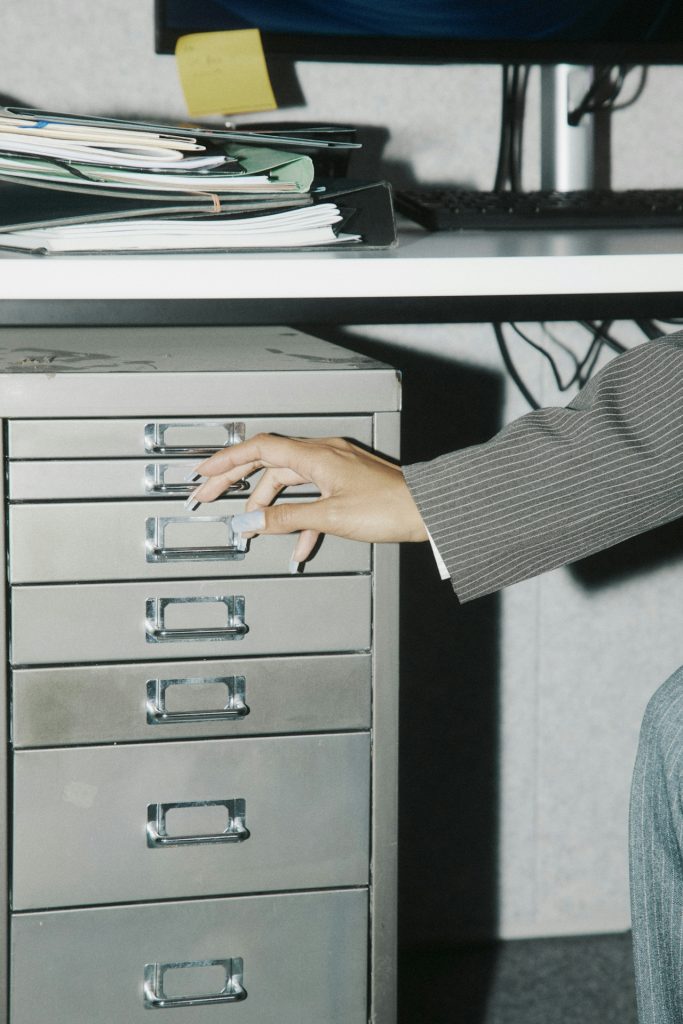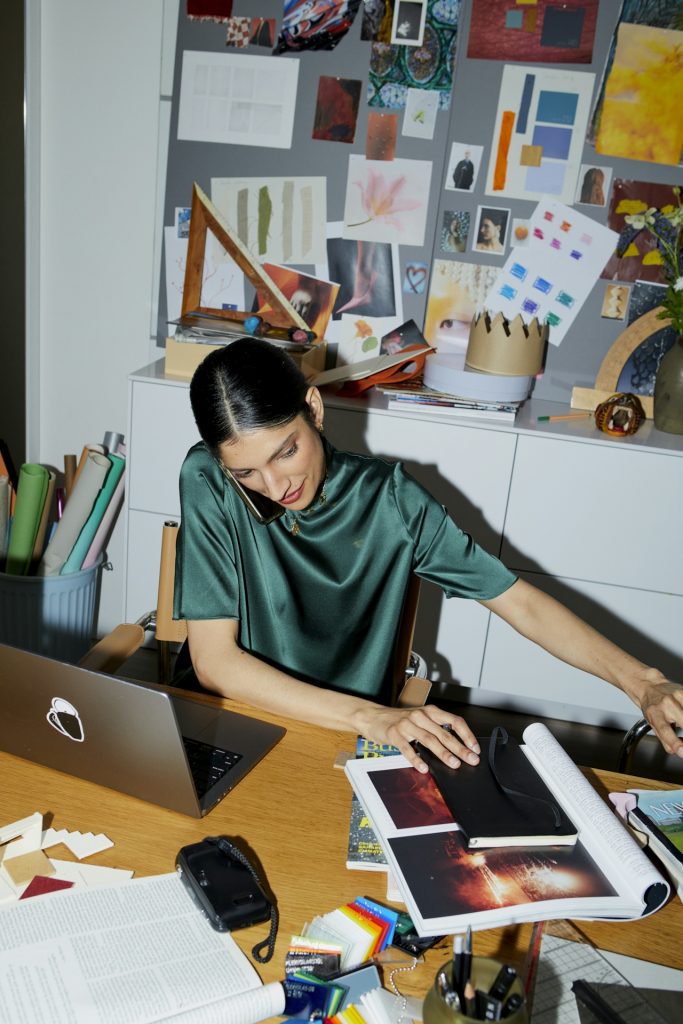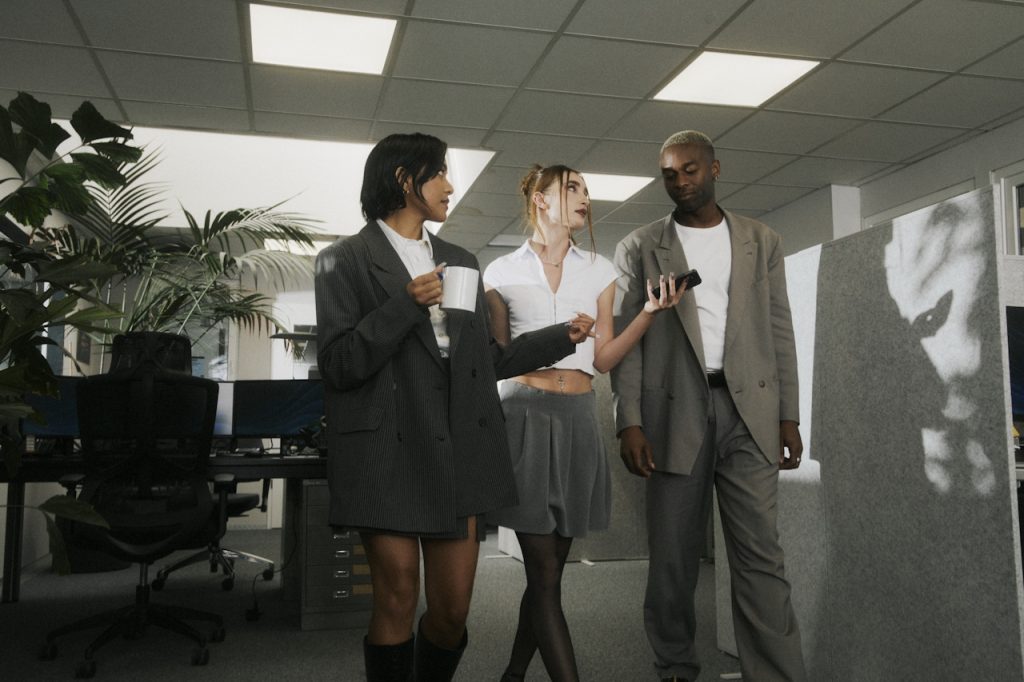Sean MacDonald is done with the mental health stigma.
Just 4 months after opening his first restaurant, ēst, at the age of 27, a global pandemic closed it down. Now, chef and entrepreneur Sean MacDonald is determined to squash the stigma around men’s mental health in the restaurant industry as it continues to be hit hardest by COVID. Through sharing his story, Sean hopes to let men across all industries know they aren’t alone.
Where does your passion for food stem from?
My passion for food mostly stems from my taste buds. I love eating food and sensing the different flavours and textures. I also love that food brings people together, creating a sense of community. Living in a country as multicultural as Canada, it’s a great way for people to share their cultures with one another. I also have a passion for creating art with food.
You became an Executive Chef at 23 and opened your own restaurant at 27. What has been your experience as a leader and entrepreneur in the food industry at such a young age?

It’s been very tough. A lot of hard work and valuable lessons learned along the way. Nothing has come easy and there has been a lot of trial and error. What I’ve realized is that good things come to those who work hard and have a good outlook. Leadership is a different learning curve. To be in control and to have people relying on you brings about different feelings and pressures, but it is very rewarding.
I have realized that a lot of people struggle with accepting and rooting for the ambitions of young chefs that really want to break through and make a name for themselves. In many of my experiences, my peers haven’t always supported me. I’ve had to deal with this kind of scrutiny my whole career. As I continue to establish my career, I’m very passionate about coaching and supporting other young chefs trying to make it. Having been in their shoes, I want to build up young talent and help them feel empowered.
Tell us more about how ēst responded to COVID-19.
Just like all restaurants around the globe, we’ve had to be super adaptable and consistently keep up-to-date on regulations and bylaws. We had to close the restaurant down twice now due to restrictions. It’s been incredibly challenging to continue to pivot the way we operate. However, our priority is always to make sure our customers are as safe as possible.
When the lockdown first happened, we had to completely close and lay off all the staff, including myself. We had just opened four months prior, so it was an incredibly stressful time for me after opening my first restaurant. When we re-opened with a patio after lockdown and changed our concept to be a small plates wine bar, we were busy every evening, and for that I’m grateful. For us specifically, take out doesn’t work with our concept because we are very experience-driven. We have now been told to close again for the second time, and our patio was removed by the city (it was a part of the street patios installed in the summer). We’re patiently awaiting hopefully re-opening in a month. It’s all about pivoting, figuring out ways to survive, and not giving up.
What impact did the pandemic have on your personal mental health?

The pandemic has been a challenging time for me personally. I’ve experienced anxiety attacks which have become more frequent during the pandemic. As a chef and entrepreneur, I’ve always put a great deal of pressure on myself. During the pandemic, this has remained true and it’s been challenging for me to let go and recognize that certain things are beyond my control. Imagine everything you have worked for in your career to all at once be up in the air and out of your control. It’s not a great feeling.
As a leader and business owner, I’ve had to make some very difficult decisions for both myself and my staff during the pandemic. Given all that’s going on, I’ve found it difficult to remember to check in with myself and make sure I’m properly managing my emotions as they arise. I’ve definitely had some hurdles to overcome, but I try to remind myself to take it one day at a time and connect with those in my network to share how I’m doing.
To feel my best, it’s been super important that I maintain a healthy diet and keep active. I also try to be open about my feelings with people who are close to me rather than keeping things to myself and bottling up my emotions. I’m lucky to have a great support system filled with people who have been there for me. It’s because of them and their guidance that I’ve been able to learn each day how to better manage my anxiety.
Why do you think mental health is such a prevalent issue in the culinary industry?
For starters, it can be an extremely competitive industry filled with constant comparison. As a chef that came into success at a young age, I was constantly comparing myself to other older chefs, putting pressure on myself to be just like them or better. With social media and how connected we’ve all become, it’s so easy to doubt yourself and feel like you haven’t accomplished enough, no matter how much success you’ve had. On top of that, people aren’t always that nice to each other over social media. I remember when I was just about to open my restaurant, I got a message from someone saying “I hope your restaurant fails.” I think it can be a taxing experience for a lot of chefs and, if not managed, can lead to anxiety and depression.
I would also say being trained as a chef, at least how I experienced it, could be crippling to a person’s self-confidence. It’s a high-intensity environment where everyone is striving for perfection. There can be a lot of verbal abuse and I know many chefs still experience that today. As a chef in a vibrant culinary city, I’ve had the opportunity to make connections and form friendships with many like-minded chefs. During the pandemic, we’ve been doing collaboration dinners together which has been super uplifting, enabling us to achieve a sense of community and ultimately remind us that we’re in this together.
What are some tangible ways that the industry can start to destigmatize men sharing their emotions, especially during COVID?
In my opinion, one of the most impactful ways Canadians can start destigmatizing men’s mental health is by participating in sharing their stories and experiences. To be open and honest with yourself is the most important. I think men always feel the need to be strong and have everything sorted out. Something like 75% of suicides are male in Canada and this is tied to men not feeling comfortable or able to open up and manage their emotions, based on what society tells us. It’s important that we, as a society, open up about our emotions to provide others that might be struggling the confidence to let people in on what they are going through.

This month, you’re partnering with Movember and STōK Cold Brew coffee to drive the conversation about mental health and suicide in Canada. Tell us about this partnership!
While I’ve been reluctant to open up about my emotions in the past, I feel fortunate to be involved in this campaign and do my part to drive the conversation surrounding men’s mental health. As part of the campaign, I was involved in a video series hosted on STōK’s IG called STōKing a Conversation that’s all about encouraging men across the country to open up, take action, and come together as a community.
This partnership marks the first time I’ve publicly expressed my experiences with mental health. For many years, I’ve shared my experiences with my friends and parents, but I’m proud to have taken the opportunity to tell my story more broadly and hopefully encourage others to do the same.
We’re all in this together and I truly believe as humans, we are on this earth to care for each other and be there for one another. If by sharing my story at least one other person feels inclined to express their emotions, then it was all worthwhile.
What advice would you give to those who are worried about their mental health heading into the second wave?
My biggest piece of advice would be to identify those individuals in your network who you can really count on for support and feel comfortable having an open conversation with and let them know how much you value them. For me, knowing I have even one or two people I can call has been a game-changer.
During this pandemic, we’ve all had our own hurdles to overcome. Each and every person has been impacted in some way. But we have to remember that we are living through a unique time that will eventually be over. Things will get better. We need to be kind and compassionate to ourselves and each other.
How do you think COVID will change the industry moving forward?
The industry has already changed so much, and each day someone has a new great idea to keep the industry moving in a positive direction. We will see at the end what comes of our industry but it’s all about not giving up. We’re thankful to our communities who continue to support how they can and we’re keeping positive.
To support ēst and stay up-to-date on their re-opening, follow them on Instagram and tune into their upcoming live-stream cooking segments on Twitch every Monday and Friday!







